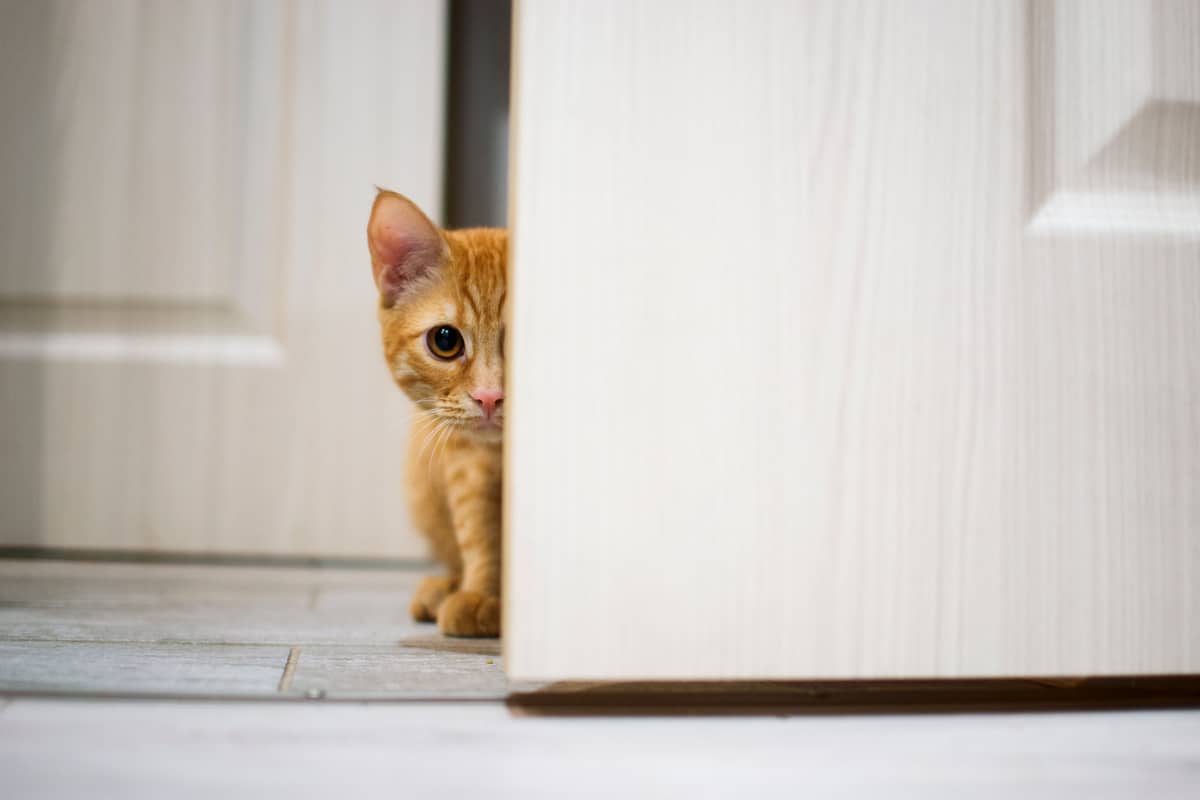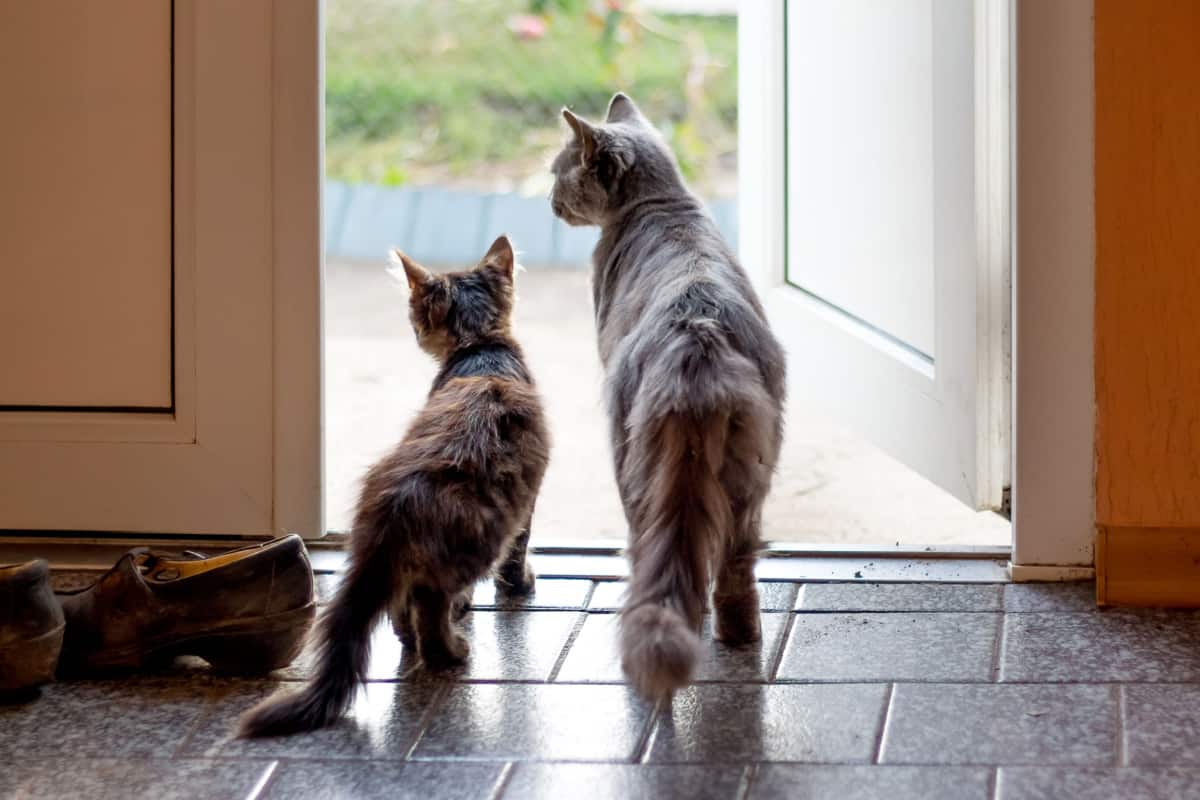Bringing an outdoor cat inside may seem impossible for many cat owners. With their wild instincts and love for the great outdoors, cats often resist the confines of domestic life.
But the dangers lurking outside – the speeding cars, aggressive dogs, and hidden predators – make the world dangerous for our beloved feline friends.
Even encounters with other cats can result in injuries, infections, and diseases.
And let's not forget the uninvited guests like ticks, fleas, ear mites, and worms that might follow your cat home.

"But my cat adores being free outside and keeps asking to be let out!"
That's perfectly natural, but a longing can be quelled with love, care, and understanding.
With patience, persistence, and these five golden rules, you can successfully transition even the most adventurous outdoor cat to a content and safe indoor life.
Whether it's a stray, a friendly semi-feral, or your outdoor-loving pet, a warm and stimulating indoor environment awaits.
The Journey to Bringing an Outdoor Cat Inside – Five Golden Rules
Before we embark on this journey, let's consider feral cats. Born outside without proper human interaction, feral cats live by their own rules.

Bringing them inside might seem like a caring gesture, but it could be more stressful than beneficial for some.
These wild felines often thrive best with outdoor support like food, shelter, and medical care.
But for socialized outdoor cats, whether adventurous pets or friendly strays, bringing them inside is not only possible but can lead to a happier, safer life.
SIGN UP FOR THECATSITE'S EMAIL UPDATES >
With understanding and the following five golden rules, you'll be well on your way to successfully bringing an outdoor cat inside.
1. Spay/Neuter Your Cat
Always spay or neuter your domestic cats.

If you haven't done so already, it's worth noting that reproductive behavior patterns can derail your attempts to make your cat an indoors-only pet.
Intact cats might display stress-induced behavioral problems if you prevent them from going outside, such as spraying smelly urine in your home.
Therefore, spay or neuter your cat several weeks before attempting this transition.
2. Secure All Exits Before Bringing an Outdoor Cat Inside
Before bringing your outdoor cat inside, secure all doors and windows. Evaluate your home to determine how to block your cat's exit routes.

If your cat is used to climbing out a window, latch it when you're not around.
Remember, you're not creating a prison but helping your cat adjust to new territorial boundaries that are better for her or him.
3. Be Consistent and Persistent
Keep Kitty inside, no exceptions. If you give in to your cat's begging, you'll teach her or him to beg even more persistently next time.
Either ignore these requests to be let outside or divert Kitty's attention with a treat or a toy. The key is to be consistent and persistent in keeping your cat indoors.
4. Make the Indoors Fun
The importance of environmental enrichment for indoor cats cannot be overstated. A significant problem with keeping a cat indoors is boredom.

Without grass, bugs, or predators, life can become dull. According to behaviorist Roger Tabor, indoors-only cats may suffer from "confinement stress" due to lack of stimuli.
Fortunately, you can create a rich and stimulating environment within the safety of your home to keep your cat entertained and engaged.
5. Be Patient
Transitioning a cat to an indoor lifestyle is a process, and changing habits takes time. Some cats, especially older ones, might need weeks or months to adjust fully.
Don't despair. With patience and a stimulating indoor environment, your cat can have a wonderful and safe life without roaming the outdoors.

Remember, you are doing what's best for your cat, and it's up to you to help Kitty make the adjustment and live a long and happy life in the security of your home.
The Reward of Bringing an Outdoor Cat Inside
The journey of bringing an outdoor cat inside is filled with challenges and uncertainties, but it's a path paved with love, care, and a deep understanding of our feline friends.
Whether dealing with a wild feral cat or a socialized outdoor adventurer, the steps and considerations outlined above can guide you toward a successful transition.
Remember, every cat is unique, and patience is your greatest ally.
With time, effort, and a sprinkle of creativity, you can transform your home into a safe and stimulating haven for your cat.
The purring contentment that awaits is a reward for your cat and a harmonious bond that will enrich both your lives.
Here's to a long and happy life in the cozy confines of your home, where every meow resonates with contentment and trust.
SIGN UP FOR THECATSITE'S EMAIL UPDATES >
Have more tips on bringing an outdoor cat inside? Share them in the comments below! Don't forget to help fellow cat lovers by pinning this image below on Facebook and Pinterest.

Read more here:
Beating Boredom What Indoor Cat Owners Need To Know
Note: We may get commissions for purchases made through links on this page.




30 comments on “The 5 Golden Rules To Bringing An Outdoor Cat Inside”